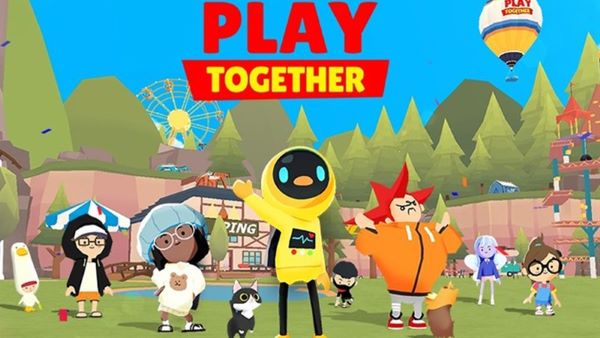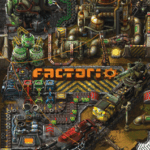Advertisement
Popular Now
Brawl Stars, the fast-paced multiplayer game developed by Supercell, has taken the mobile gaming world by storm since its release in 2018. It blends elements of strategy, action, and competitive play, offering players a variety of game modes and characters (called Brawlers). While the game is free-to-play, one of the most discussed aspects of Brawl Stars has been its microtransactions system. This system allows players to purchase in-game items, such as skins, brawlers, and power-ups, using real-world money. While these purchases are optional, their presence has raised concerns among the player community about the impact of microtransactions on the overall gaming experience.
Microtransactions, often seen as a means for developers to monetize free-to-play games, have been a point of contention for many players. On one hand, they provide a revenue stream that allows the game to continue to be free for everyone; on the other hand, they can create an imbalance in gameplay and foster a "pay-to-win" environment. In this article, we will explore the impact of microtransactions on Brawl Stars, looking at the various ways in which they affect the player experience, game balance, and community engagement.
The Role of Microtransactions in Free-to-Play Games
Microtransactions are a common feature in free-to-play games like Brawl Stars. These transactions allow players to purchase in-game currency, items, or other enhancements to improve their gaming experience. For Brawl Stars, players can use real-world money to buy gems, which are then used to unlock new Brawlers, skins, and other upgrades. This model helps the developers generate revenue while keeping the game accessible to a wider audience.
While the free-to-play model has made gaming more inclusive, the implementation of microtransactions can lead to significant disparities in how players progress. Some players might choose to invest real money into the game to unlock content quickly, while others might opt for the more time-consuming route of grinding to earn the same rewards. This discrepancy can create a divide in the player base, with those who spend money gaining advantages over those who don’t.
 The "Pay-to-Win" Debate in Brawl Stars
One of the most contentious issues surrounding microtransactions in Brawl Stars is the concern that they create a "pay-to-win" (P2W) environment. A pay-to-win model occurs when players who spend money on microtransactions have a significant advantage over those who don’t. In Brawl Stars, purchasing Brawlers, skins, or power-ups can give players an edge in certain situations, especially in competitive game modes like Trophy Road and Power League.
While Supercell has made efforts to ensure that skill and strategy are the primary factors in determining the outcome of a match, the presence of microtransactions still creates an uneven playing field. Players who spend money can unlock new Brawlers faster, increase their power levels, and gain access to exclusive content that might not be available to free-to-play players. This can lead to frustration for those who are unable or unwilling to spend money, as they might feel that they are at a disadvantage in comparison to paying players.
The "Pay-to-Win" Debate in Brawl Stars
One of the most contentious issues surrounding microtransactions in Brawl Stars is the concern that they create a "pay-to-win" (P2W) environment. A pay-to-win model occurs when players who spend money on microtransactions have a significant advantage over those who don’t. In Brawl Stars, purchasing Brawlers, skins, or power-ups can give players an edge in certain situations, especially in competitive game modes like Trophy Road and Power League.
While Supercell has made efforts to ensure that skill and strategy are the primary factors in determining the outcome of a match, the presence of microtransactions still creates an uneven playing field. Players who spend money can unlock new Brawlers faster, increase their power levels, and gain access to exclusive content that might not be available to free-to-play players. This can lead to frustration for those who are unable or unwilling to spend money, as they might feel that they are at a disadvantage in comparison to paying players.
 How Microtransactions Affect Game Balance
Microtransactions can also have a significant impact on the game’s overall balance. As new Brawlers are introduced, many of them come with unique abilities and traits that can drastically alter the dynamics of the game. While some of these Brawlers are available to all players, others are locked behind a paywall, meaning that only those who purchase them or spend significant time unlocking them will have access to them.
This imbalance can be particularly frustrating for players who prefer certain game modes, such as Showdown or Bounty, where the selection of Brawlers can greatly affect the outcome of a match. For example, a newly released Brawler may be overpowered upon introduction, giving paying players a competitive advantage. Over time, Supercell may nerf these Brawlers to balance the game, but by then, paying players may have already benefited from their power boost.
The Impact on Player Motivation and Progression
In Brawl Stars, progression is a key element of the gameplay experience. Players unlock new Brawlers, skins, and upgrades as they level up and gain rewards. Microtransactions can influence this progression in various ways. Players who spend money on the game can speed up their progression, acquiring new content and upgrades more quickly than those who do not.
While this might seem like a benefit for paying players, it can diminish the sense of achievement for non-paying players. Those who grind through the game without spending money may feel that they are being left behind or that their progress is slow compared to those who have purchased advantages. This can lead to frustration and a decrease in overall player retention, as players may feel that the game is unfairly tilted toward those who spend money.
The Psychological Effects of Microtransactions
Microtransactions in Brawl Stars also have a psychological impact on players. The game uses various techniques to encourage spending, such as offering limited-time offers, special bundles, and exclusive skins. These strategies are designed to create a sense of urgency and exclusivity, encouraging players to make impulsive purchases.
For some players, these tactics can lead to feelings of inadequacy or dissatisfaction with the game. They may feel pressure to spend money in order to keep up with other players or to unlock exclusive content that is perceived as valuable. Over time, this can lead to a cycle of constant spending, as players try to maintain a competitive edge or satisfy their desire for new content. This behavior is commonly referred to as "whale" spending, where a small subset of players spends a significant amount of money on microtransactions.
Community Reaction to Microtransactions
The community's reaction to microtransactions in Brawl Stars has been mixed. Some players argue that the game's microtransaction system is fair and allows players to choose whether or not to spend money. They see it as a way to support the developers and help keep the game free for everyone. Others, however, feel that the system encourages greed and disrupts the balance of the game. These players believe that Brawl Stars should be more focused on skill-based progression rather than offering shortcuts through monetary purchases.
Supercell has responded to community feedback by making adjustments to the game's microtransaction system. For example, they have introduced features like the Brawl Pass, which provides players with a way to earn rewards through gameplay rather than spending money. This system has been well-received by many players, as it allows them to unlock exclusive content without the need for microtransactions.
The Role of the Brawl Pass
The Brawl Pass has become an integral part of the Brawl Stars experience, offering players a way to unlock rewards through gameplay while also providing an optional path for those who wish to purchase additional content. This system strikes a balance between free-to-play progression and the inclusion of paid content, allowing players to earn rewards over time while also giving paying players exclusive bonuses.
However, the Brawl Pass also contributes to the ongoing debate about microtransactions in the game. While it offers a more structured and rewarding progression system, it also creates a sense of FOMO (fear of missing out), as players may feel compelled to purchase the Brawl Pass in order to access all the content. This pressure to buy the pass can undermine the satisfaction of unlocking rewards through pure gameplay.
How Microtransactions Affect Game Balance
Microtransactions can also have a significant impact on the game’s overall balance. As new Brawlers are introduced, many of them come with unique abilities and traits that can drastically alter the dynamics of the game. While some of these Brawlers are available to all players, others are locked behind a paywall, meaning that only those who purchase them or spend significant time unlocking them will have access to them.
This imbalance can be particularly frustrating for players who prefer certain game modes, such as Showdown or Bounty, where the selection of Brawlers can greatly affect the outcome of a match. For example, a newly released Brawler may be overpowered upon introduction, giving paying players a competitive advantage. Over time, Supercell may nerf these Brawlers to balance the game, but by then, paying players may have already benefited from their power boost.
The Impact on Player Motivation and Progression
In Brawl Stars, progression is a key element of the gameplay experience. Players unlock new Brawlers, skins, and upgrades as they level up and gain rewards. Microtransactions can influence this progression in various ways. Players who spend money on the game can speed up their progression, acquiring new content and upgrades more quickly than those who do not.
While this might seem like a benefit for paying players, it can diminish the sense of achievement for non-paying players. Those who grind through the game without spending money may feel that they are being left behind or that their progress is slow compared to those who have purchased advantages. This can lead to frustration and a decrease in overall player retention, as players may feel that the game is unfairly tilted toward those who spend money.
The Psychological Effects of Microtransactions
Microtransactions in Brawl Stars also have a psychological impact on players. The game uses various techniques to encourage spending, such as offering limited-time offers, special bundles, and exclusive skins. These strategies are designed to create a sense of urgency and exclusivity, encouraging players to make impulsive purchases.
For some players, these tactics can lead to feelings of inadequacy or dissatisfaction with the game. They may feel pressure to spend money in order to keep up with other players or to unlock exclusive content that is perceived as valuable. Over time, this can lead to a cycle of constant spending, as players try to maintain a competitive edge or satisfy their desire for new content. This behavior is commonly referred to as "whale" spending, where a small subset of players spends a significant amount of money on microtransactions.
Community Reaction to Microtransactions
The community's reaction to microtransactions in Brawl Stars has been mixed. Some players argue that the game's microtransaction system is fair and allows players to choose whether or not to spend money. They see it as a way to support the developers and help keep the game free for everyone. Others, however, feel that the system encourages greed and disrupts the balance of the game. These players believe that Brawl Stars should be more focused on skill-based progression rather than offering shortcuts through monetary purchases.
Supercell has responded to community feedback by making adjustments to the game's microtransaction system. For example, they have introduced features like the Brawl Pass, which provides players with a way to earn rewards through gameplay rather than spending money. This system has been well-received by many players, as it allows them to unlock exclusive content without the need for microtransactions.
The Role of the Brawl Pass
The Brawl Pass has become an integral part of the Brawl Stars experience, offering players a way to unlock rewards through gameplay while also providing an optional path for those who wish to purchase additional content. This system strikes a balance between free-to-play progression and the inclusion of paid content, allowing players to earn rewards over time while also giving paying players exclusive bonuses.
However, the Brawl Pass also contributes to the ongoing debate about microtransactions in the game. While it offers a more structured and rewarding progression system, it also creates a sense of FOMO (fear of missing out), as players may feel compelled to purchase the Brawl Pass in order to access all the content. This pressure to buy the pass can undermine the satisfaction of unlocking rewards through pure gameplay.
 How Microtransactions Affect Long-Term Player Retention
The long-term impact of microtransactions on player retention in Brawl Stars remains a topic of concern. While spending money on the game can provide short-term satisfaction, it does not necessarily ensure long-term engagement. Many players may initially enjoy the game but eventually lose interest due to the frustration of facing paying players who have unlocked exclusive content or gained power-ups more quickly.
To maintain a healthy player base, Supercell must strike a delicate balance between monetization and player satisfaction. Over-reliance on microtransactions can lead to a decline in player retention, as those who feel unfairly treated by the system may stop playing altogether. By listening to player feedback and making adjustments to the microtransaction system, Supercell can help ensure that the game remains enjoyable for both paying and non-paying players.
Conclusion
Microtransactions in Brawl Stars are a double-edged sword. On one hand, they provide a source of revenue for the developers and help keep the game free for all players. On the other hand, they create potential issues with game balance, player motivation, and community satisfaction. While the introduction of systems like the Brawl Pass has helped alleviate some concerns, the presence of microtransactions remains a point of contention within the community.
As Brawl Stars continues to evolve, Supercell must be mindful of the impact that microtransactions have on the player experience. By prioritizing fairness, transparency, and skill-based progression, the developers can ensure that the game remains enjoyable for all players, regardless of whether they choose to spend money or not. Ultimately, the success of Brawl Stars will depend on its ability to strike a balance between monetization and player satisfaction, creating an experience that feels rewarding for everyone.
How Microtransactions Affect Long-Term Player Retention
The long-term impact of microtransactions on player retention in Brawl Stars remains a topic of concern. While spending money on the game can provide short-term satisfaction, it does not necessarily ensure long-term engagement. Many players may initially enjoy the game but eventually lose interest due to the frustration of facing paying players who have unlocked exclusive content or gained power-ups more quickly.
To maintain a healthy player base, Supercell must strike a delicate balance between monetization and player satisfaction. Over-reliance on microtransactions can lead to a decline in player retention, as those who feel unfairly treated by the system may stop playing altogether. By listening to player feedback and making adjustments to the microtransaction system, Supercell can help ensure that the game remains enjoyable for both paying and non-paying players.
Conclusion
Microtransactions in Brawl Stars are a double-edged sword. On one hand, they provide a source of revenue for the developers and help keep the game free for all players. On the other hand, they create potential issues with game balance, player motivation, and community satisfaction. While the introduction of systems like the Brawl Pass has helped alleviate some concerns, the presence of microtransactions remains a point of contention within the community.
As Brawl Stars continues to evolve, Supercell must be mindful of the impact that microtransactions have on the player experience. By prioritizing fairness, transparency, and skill-based progression, the developers can ensure that the game remains enjoyable for all players, regardless of whether they choose to spend money or not. Ultimately, the success of Brawl Stars will depend on its ability to strike a balance between monetization and player satisfaction, creating an experience that feels rewarding for everyone.
 The "Pay-to-Win" Debate in Brawl Stars
One of the most contentious issues surrounding microtransactions in Brawl Stars is the concern that they create a "pay-to-win" (P2W) environment. A pay-to-win model occurs when players who spend money on microtransactions have a significant advantage over those who don’t. In Brawl Stars, purchasing Brawlers, skins, or power-ups can give players an edge in certain situations, especially in competitive game modes like Trophy Road and Power League.
While Supercell has made efforts to ensure that skill and strategy are the primary factors in determining the outcome of a match, the presence of microtransactions still creates an uneven playing field. Players who spend money can unlock new Brawlers faster, increase their power levels, and gain access to exclusive content that might not be available to free-to-play players. This can lead to frustration for those who are unable or unwilling to spend money, as they might feel that they are at a disadvantage in comparison to paying players.
The "Pay-to-Win" Debate in Brawl Stars
One of the most contentious issues surrounding microtransactions in Brawl Stars is the concern that they create a "pay-to-win" (P2W) environment. A pay-to-win model occurs when players who spend money on microtransactions have a significant advantage over those who don’t. In Brawl Stars, purchasing Brawlers, skins, or power-ups can give players an edge in certain situations, especially in competitive game modes like Trophy Road and Power League.
While Supercell has made efforts to ensure that skill and strategy are the primary factors in determining the outcome of a match, the presence of microtransactions still creates an uneven playing field. Players who spend money can unlock new Brawlers faster, increase their power levels, and gain access to exclusive content that might not be available to free-to-play players. This can lead to frustration for those who are unable or unwilling to spend money, as they might feel that they are at a disadvantage in comparison to paying players.
 How Microtransactions Affect Game Balance
Microtransactions can also have a significant impact on the game’s overall balance. As new Brawlers are introduced, many of them come with unique abilities and traits that can drastically alter the dynamics of the game. While some of these Brawlers are available to all players, others are locked behind a paywall, meaning that only those who purchase them or spend significant time unlocking them will have access to them.
This imbalance can be particularly frustrating for players who prefer certain game modes, such as Showdown or Bounty, where the selection of Brawlers can greatly affect the outcome of a match. For example, a newly released Brawler may be overpowered upon introduction, giving paying players a competitive advantage. Over time, Supercell may nerf these Brawlers to balance the game, but by then, paying players may have already benefited from their power boost.
The Impact on Player Motivation and Progression
In Brawl Stars, progression is a key element of the gameplay experience. Players unlock new Brawlers, skins, and upgrades as they level up and gain rewards. Microtransactions can influence this progression in various ways. Players who spend money on the game can speed up their progression, acquiring new content and upgrades more quickly than those who do not.
While this might seem like a benefit for paying players, it can diminish the sense of achievement for non-paying players. Those who grind through the game without spending money may feel that they are being left behind or that their progress is slow compared to those who have purchased advantages. This can lead to frustration and a decrease in overall player retention, as players may feel that the game is unfairly tilted toward those who spend money.
The Psychological Effects of Microtransactions
Microtransactions in Brawl Stars also have a psychological impact on players. The game uses various techniques to encourage spending, such as offering limited-time offers, special bundles, and exclusive skins. These strategies are designed to create a sense of urgency and exclusivity, encouraging players to make impulsive purchases.
For some players, these tactics can lead to feelings of inadequacy or dissatisfaction with the game. They may feel pressure to spend money in order to keep up with other players or to unlock exclusive content that is perceived as valuable. Over time, this can lead to a cycle of constant spending, as players try to maintain a competitive edge or satisfy their desire for new content. This behavior is commonly referred to as "whale" spending, where a small subset of players spends a significant amount of money on microtransactions.
Community Reaction to Microtransactions
The community's reaction to microtransactions in Brawl Stars has been mixed. Some players argue that the game's microtransaction system is fair and allows players to choose whether or not to spend money. They see it as a way to support the developers and help keep the game free for everyone. Others, however, feel that the system encourages greed and disrupts the balance of the game. These players believe that Brawl Stars should be more focused on skill-based progression rather than offering shortcuts through monetary purchases.
Supercell has responded to community feedback by making adjustments to the game's microtransaction system. For example, they have introduced features like the Brawl Pass, which provides players with a way to earn rewards through gameplay rather than spending money. This system has been well-received by many players, as it allows them to unlock exclusive content without the need for microtransactions.
The Role of the Brawl Pass
The Brawl Pass has become an integral part of the Brawl Stars experience, offering players a way to unlock rewards through gameplay while also providing an optional path for those who wish to purchase additional content. This system strikes a balance between free-to-play progression and the inclusion of paid content, allowing players to earn rewards over time while also giving paying players exclusive bonuses.
However, the Brawl Pass also contributes to the ongoing debate about microtransactions in the game. While it offers a more structured and rewarding progression system, it also creates a sense of FOMO (fear of missing out), as players may feel compelled to purchase the Brawl Pass in order to access all the content. This pressure to buy the pass can undermine the satisfaction of unlocking rewards through pure gameplay.
How Microtransactions Affect Game Balance
Microtransactions can also have a significant impact on the game’s overall balance. As new Brawlers are introduced, many of them come with unique abilities and traits that can drastically alter the dynamics of the game. While some of these Brawlers are available to all players, others are locked behind a paywall, meaning that only those who purchase them or spend significant time unlocking them will have access to them.
This imbalance can be particularly frustrating for players who prefer certain game modes, such as Showdown or Bounty, where the selection of Brawlers can greatly affect the outcome of a match. For example, a newly released Brawler may be overpowered upon introduction, giving paying players a competitive advantage. Over time, Supercell may nerf these Brawlers to balance the game, but by then, paying players may have already benefited from their power boost.
The Impact on Player Motivation and Progression
In Brawl Stars, progression is a key element of the gameplay experience. Players unlock new Brawlers, skins, and upgrades as they level up and gain rewards. Microtransactions can influence this progression in various ways. Players who spend money on the game can speed up their progression, acquiring new content and upgrades more quickly than those who do not.
While this might seem like a benefit for paying players, it can diminish the sense of achievement for non-paying players. Those who grind through the game without spending money may feel that they are being left behind or that their progress is slow compared to those who have purchased advantages. This can lead to frustration and a decrease in overall player retention, as players may feel that the game is unfairly tilted toward those who spend money.
The Psychological Effects of Microtransactions
Microtransactions in Brawl Stars also have a psychological impact on players. The game uses various techniques to encourage spending, such as offering limited-time offers, special bundles, and exclusive skins. These strategies are designed to create a sense of urgency and exclusivity, encouraging players to make impulsive purchases.
For some players, these tactics can lead to feelings of inadequacy or dissatisfaction with the game. They may feel pressure to spend money in order to keep up with other players or to unlock exclusive content that is perceived as valuable. Over time, this can lead to a cycle of constant spending, as players try to maintain a competitive edge or satisfy their desire for new content. This behavior is commonly referred to as "whale" spending, where a small subset of players spends a significant amount of money on microtransactions.
Community Reaction to Microtransactions
The community's reaction to microtransactions in Brawl Stars has been mixed. Some players argue that the game's microtransaction system is fair and allows players to choose whether or not to spend money. They see it as a way to support the developers and help keep the game free for everyone. Others, however, feel that the system encourages greed and disrupts the balance of the game. These players believe that Brawl Stars should be more focused on skill-based progression rather than offering shortcuts through monetary purchases.
Supercell has responded to community feedback by making adjustments to the game's microtransaction system. For example, they have introduced features like the Brawl Pass, which provides players with a way to earn rewards through gameplay rather than spending money. This system has been well-received by many players, as it allows them to unlock exclusive content without the need for microtransactions.
The Role of the Brawl Pass
The Brawl Pass has become an integral part of the Brawl Stars experience, offering players a way to unlock rewards through gameplay while also providing an optional path for those who wish to purchase additional content. This system strikes a balance between free-to-play progression and the inclusion of paid content, allowing players to earn rewards over time while also giving paying players exclusive bonuses.
However, the Brawl Pass also contributes to the ongoing debate about microtransactions in the game. While it offers a more structured and rewarding progression system, it also creates a sense of FOMO (fear of missing out), as players may feel compelled to purchase the Brawl Pass in order to access all the content. This pressure to buy the pass can undermine the satisfaction of unlocking rewards through pure gameplay.
 How Microtransactions Affect Long-Term Player Retention
The long-term impact of microtransactions on player retention in Brawl Stars remains a topic of concern. While spending money on the game can provide short-term satisfaction, it does not necessarily ensure long-term engagement. Many players may initially enjoy the game but eventually lose interest due to the frustration of facing paying players who have unlocked exclusive content or gained power-ups more quickly.
To maintain a healthy player base, Supercell must strike a delicate balance between monetization and player satisfaction. Over-reliance on microtransactions can lead to a decline in player retention, as those who feel unfairly treated by the system may stop playing altogether. By listening to player feedback and making adjustments to the microtransaction system, Supercell can help ensure that the game remains enjoyable for both paying and non-paying players.
Conclusion
Microtransactions in Brawl Stars are a double-edged sword. On one hand, they provide a source of revenue for the developers and help keep the game free for all players. On the other hand, they create potential issues with game balance, player motivation, and community satisfaction. While the introduction of systems like the Brawl Pass has helped alleviate some concerns, the presence of microtransactions remains a point of contention within the community.
As Brawl Stars continues to evolve, Supercell must be mindful of the impact that microtransactions have on the player experience. By prioritizing fairness, transparency, and skill-based progression, the developers can ensure that the game remains enjoyable for all players, regardless of whether they choose to spend money or not. Ultimately, the success of Brawl Stars will depend on its ability to strike a balance between monetization and player satisfaction, creating an experience that feels rewarding for everyone.
How Microtransactions Affect Long-Term Player Retention
The long-term impact of microtransactions on player retention in Brawl Stars remains a topic of concern. While spending money on the game can provide short-term satisfaction, it does not necessarily ensure long-term engagement. Many players may initially enjoy the game but eventually lose interest due to the frustration of facing paying players who have unlocked exclusive content or gained power-ups more quickly.
To maintain a healthy player base, Supercell must strike a delicate balance between monetization and player satisfaction. Over-reliance on microtransactions can lead to a decline in player retention, as those who feel unfairly treated by the system may stop playing altogether. By listening to player feedback and making adjustments to the microtransaction system, Supercell can help ensure that the game remains enjoyable for both paying and non-paying players.
Conclusion
Microtransactions in Brawl Stars are a double-edged sword. On one hand, they provide a source of revenue for the developers and help keep the game free for all players. On the other hand, they create potential issues with game balance, player motivation, and community satisfaction. While the introduction of systems like the Brawl Pass has helped alleviate some concerns, the presence of microtransactions remains a point of contention within the community.
As Brawl Stars continues to evolve, Supercell must be mindful of the impact that microtransactions have on the player experience. By prioritizing fairness, transparency, and skill-based progression, the developers can ensure that the game remains enjoyable for all players, regardless of whether they choose to spend money or not. Ultimately, the success of Brawl Stars will depend on its ability to strike a balance between monetization and player satisfaction, creating an experience that feels rewarding for everyone. 

















